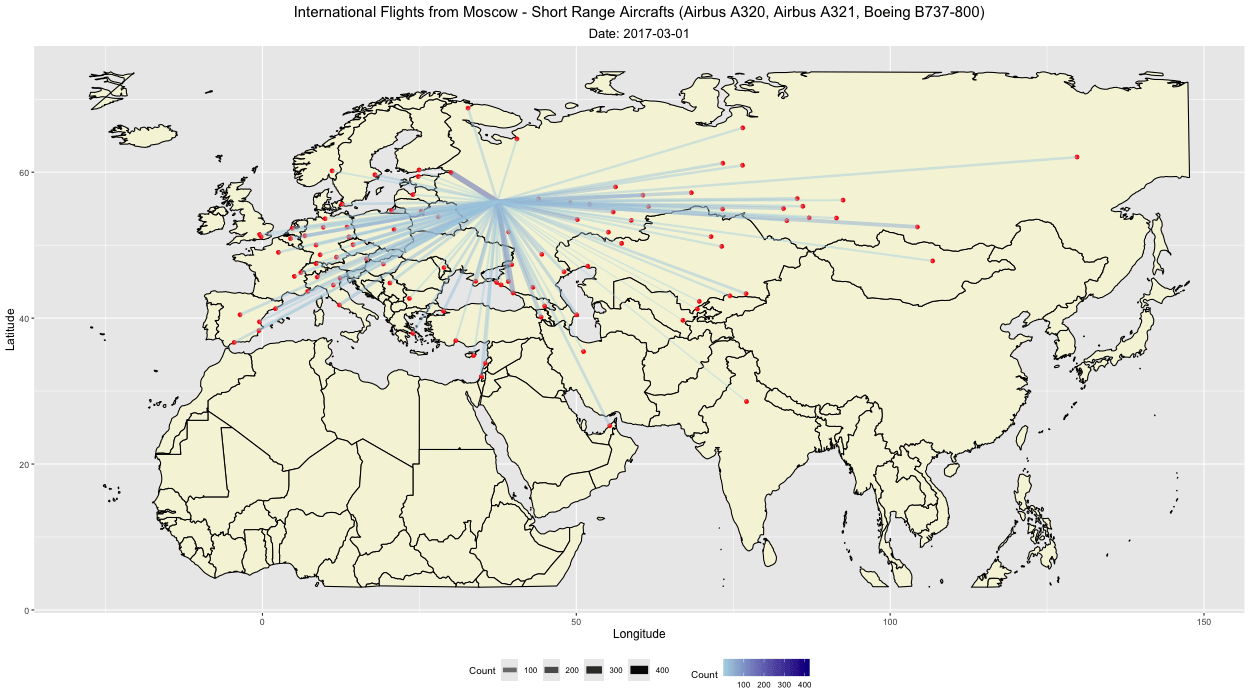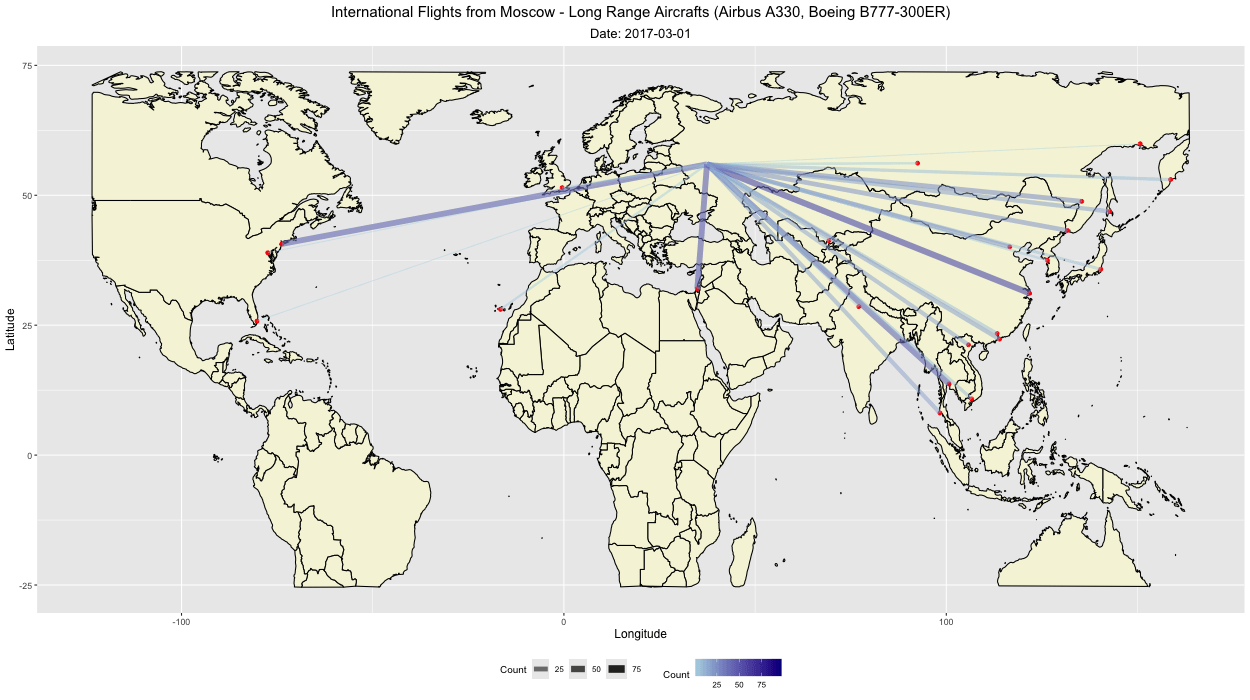Faculty Sponsors: Maryam Gooyabadi, Peter Rutland
Abstract:
In February 2022, Russia launched an unauthorized military operation in Ukraine, provoking global condemnation. This conflict heightened geopolitical tensions and led to sanctions imposed by various European and North American countries, resulting in restrictions on flights from Russia. Since then, Russia has been banned from the airspace of many countries, significantly impacting its largest state-owned airline, Aeroflot. With many frequently visited destinations now blocked, this research aims to analyze how Aeroflot has responded. A sample of 63 Aeroflot planes were tracked, collecting flight data from Sheremetyevo International Airport in Moscow, covering the period from June 2017 to June 2024. Using this data, time series models were developed for each destination to compare the number of flights that would have occurred if the war had not happened with the actual number of flights. The results of this research indicate a significant increase in domestic flights, as well as flights to Turkey, Belarus, Uzbekistan, and various other countries.
FlightResearchPosterVideo Visualization of Flights Departing from Moscow:




